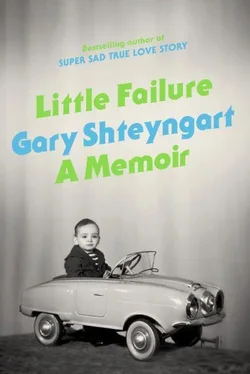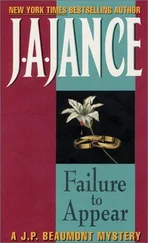I suppose I was a tightly wound kid that summer, both excited and confounded by the sunny southern landscape before me and by the sight of healthier, stronger bodies bouncing around me and my broken rooster in their full Slavic splendor. Unbeknownst to me, my mother was in the middle of a crisis herself, wondering whether to stay with my sick grandmother in Russia or leave her behind forever and emigrate to America. The decision was made for her in a greasy Crimean cafeteria. Over a bowl of tomato soup, a stout Siberian woman told my mother of the senseless beating her eighteen-year-old son had endured after his conscription by the Red Army, a beating that had cost him a kidney. The woman took out a photo of her boy. He resembled a moose of great stature crossbred with an equally colossal ox. My mother took one look at this fallen giant and then at her tiny, wheezing son, and soon enough we were on a plane bound for Queens. Roosterovich, with his sad limp and beautiful red wattle, remained the only victim of the Soviet military.
But whom I really missed that summer, the reason for my violent outburst against all manner of Ukrainians, was my real best friend. My father. Because all those other memories are just cue cards for an enormous stage set that has long evaporated along with the rest of the Soviet Union. Did any of this really happen? I sometimes ask myself. Did Junior Comrade Igor Shteyngart ever really huff and puff his way across the shoreline of the Black Sea, or was that some other imaginary invalid?
Summer 1978. I lived then for the long line to the phone booth marked by the word LENINGRAD (separate phone booths for different cities) to hear my father’s voice crackle dimly against every technological problem the country was experiencing, from a failed nuclear test in the Kazakh desert to a sick braying billy goat in nearby Belorussia. We were all connected by failure back then. The whole Soviet Union was just fading out. My father told me stories over the phone, and to this day I think my hearing is the most active of my five senses because I would strain to hear him so acutely during my Black Sea vacations.
The conversations are gone, but one of the letters remains. It is written in my father’s clumsy childish script, the script of a typical male Soviet engineer. It’s a letter that survives because so many people wanted it to. We are not an overly sentimental people, I hope, but we have an uncanny knowledge of just how much to save, of how many wrinkled documents a Manhattan closet will one day hold.
I am a child of five in a subterranean vacation hut, and I am holding in my hands this holy scribbled letter, the Cyrillic dense and filled with crossed-out words, and as I am reading I am speaking the words aloud, and as I am speaking them aloud I am lost in the ecstasy of connection.
Good day, dear little son .
How are you doing? What are you doing? Are you going to climb the “Bear” Mountain and how many gloves have you found in the sea? Have you learned to swim yet and if so are you planning to swim away to Turkey?
A pause here on my part. I have no idea what these sea gloves are and only a dim recollection of “Bear” Mountain (Everest it was not). I want to focus on the last sentence, the swimming to Turkey one. Turkey is, of course, across the Black Sea, but we are in the Soviet Union, and we obviously cannot go there, either by steamship or by doing the butterfly stroke. Is this subversive on my father’s part? Or a reference to his greatest wish, the wish that my mother relent and let us emigrate to the West? Or, subconsciously, a connection to the Chesme Church mentioned above, “more pastry than edifice,” commemorating Russia’s victory over the Turks?
Little son, there are only a few days left until we meet again, do not be lonely, behave yourself, listen to your mother and your aunt Tanya. Kisses, Papa .
Do not be lonely? But how could I not be lonely without him? And is he really saying that he, too, is lonely? But of course! As if to soften the blow, right below the main text of the letter, I find my favorite thing in the world, better than the chocolate-covered marzipan that excites me so feverishly back in Leningrad. It’s an illustrated adventure story from my father! A thriller along the lines of Ian Fleming, but with a few personal touches to appeal to a peculiar little boy. It begins like so:
One day in [the resort town of] Gurzuf [where I am presently gaining color along my cheeks and arms], a submarine named Arzum sailed in from Turkey .
My father has drawn a submarine with a periscope approaching a phallic Crimean mountain, covered either with trees or beach umbrellas; it is difficult to tell. The illustration is crude, but so is life in our homeland.
Two commandos wearing Aqua-Lungs departed the boat and swam for the shore .
The invaders look more like walking sturgeon in my father’s broad hand, but then the Turks are not known for their litheness.
Unbeknownst to our border guards they headed for the mountain, for the forest .
The Turks — or are they really Turks, perhaps they are American spies merely using Turkey as a staging ground (Jesus Christ, I’m not even seven years old, and already so many enemies !) — are indeed climbing the beach-umbrella-covered mountain. One thought: “ our border guards.” A sleight of hand, on my father’s part; he has devoted the previous thirty years of his life to hating the Soviet Union, much as he will devote the next thirty to loving America. But we haven’t left the country yet. And I, militant worshipper of the Red Army, red Pioneer neckties, just about anything bloody red, am not allowed to know yet what my father knows, namely that everything I hold dear is untrue.
He writes:
In the morning the Soviet border guards saw fresh trails on the beach of the “Pushkin” sanatorium and called on the border guard, who summoned their search dog. She quickly found the two hidden Aqua-Lungs under the rocks. It was clear — an enemy. “Search!” the border guards commanded the dog, and she immediately ran in the direction of the International Pioneers Camp .
Oh, what I would give for a doggie, the adorable fuzzy kind my father’s pen is now deploying against those overweight American Turks. But my mother has enough troubles managing me, let alone a pet.
Story to be continued — at home .
To be continued? At home? How cruel. How will I know if the brave Soviet border guard doggie and her heavily armed human masters will discover the enemy and do to the enemy what I wish to be done to the enemy? That is, the infliction of a slow, cruel death, the only kind we’re comfortable with here in the USSR. Death to the Germans, death to the fascists, death to the capitalists, death to the enemies of the people! How my blood boils even at this ridiculously young age, how infused I am with helpless anger. And if you fast-forward to the virgin futon in my roach-infested Brooklyn studio, to the drunken downtown resettlement agency, to the annex of the Strand bookstore, circa 1996, believe me, I am still full of vile, unanalyzed, de-Oberlinized rage. A quiet, thoughtful child on the outside, garrulous and funny, but scratch this Russian and you will find a dozen Tatars, give me a rake and I will rush against the enemy hidden in the village bales, I will flush them out like a border collie, I will rip them to the shreds with my own teeth. Insult my pet mechanical rooster, will you! And so: anger, excitement, violence, and love. “Little son, there are only a few days left until we meet again,” my father writes, and these words are truer and sadder than any in my life. Why a few days more? Why not right now? My father. My hometown. My Leningrad. The Chesme Church. The countdown has already begun. Each moment, each meter of distance between us, is intolerable.
Читать дальше












